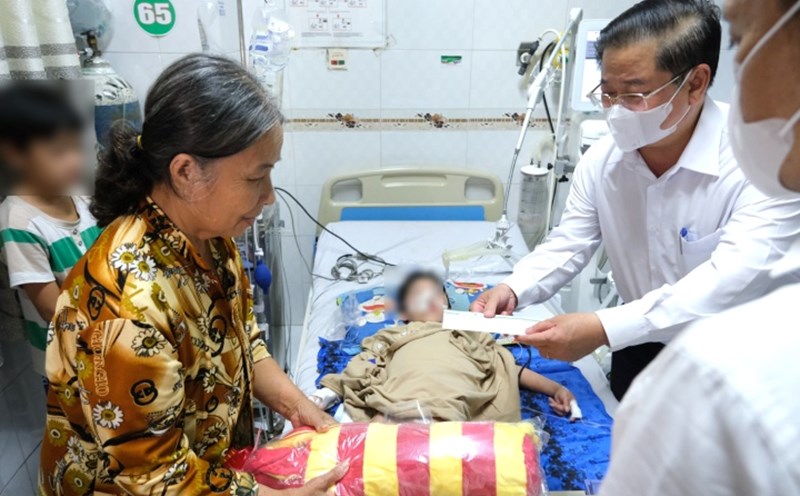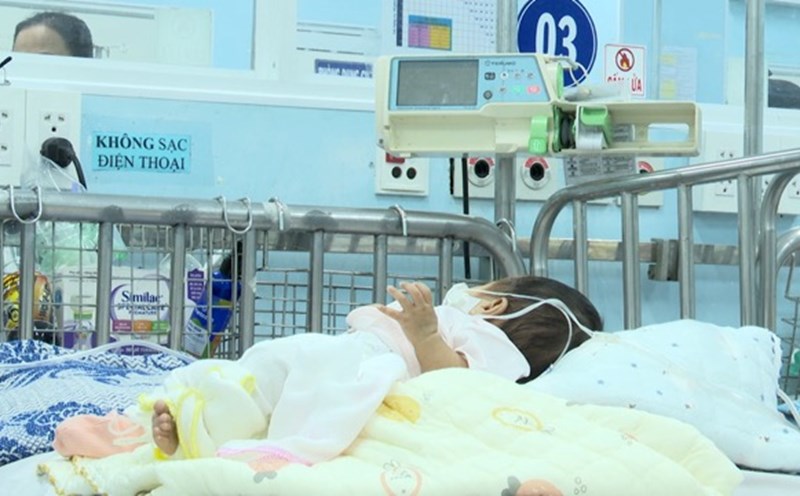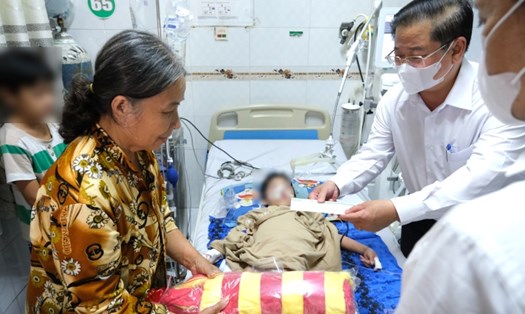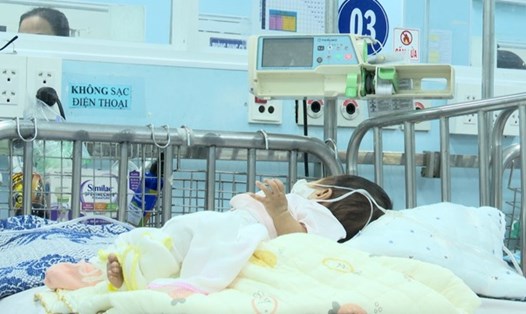Patient Nguyen Minh Chau (character's name has been changed, 8 years old, District 11, HCMC) was admitted to the hospital at 12:00 on December 3, 2024 in a cyanotic state.
According to the family, for the first three days, the child only had a cough and no fever. However, on the fourth day, the child had a high fever of 41-42 degrees Celsius, with one loose stool and more than 10 vomiting episodes. The child was tired, pale, had chest pain, and abdominal pain, forcing the family to quickly take him to the hospital.
At Children's Hospital 1 in Ho Chi Minh City, the patient was admitted in a state of cyanosis, restlessness, and cardiovascular collapse with symptoms such as cold hands and feet, rapid pulse, and unmeasurable blood pressure. The child was immediately given respiratory support and anti-shock treatment.
However, the condition did not improve, so the doctors had to intubate to support breathing, use strong antibiotics along with three types of vasopressors at maximum doses to support the heart, but the blood pressure still did not increase. A bedside echocardiogram showed that the child's heart was contracting very weakly.
A quick consultation was held with the participation of Intensive Care, Emergency and Cardiology doctors. Doctors determined that this was a case of resistant septic shock causing cardiovascular collapse and cardiogenic shock that did not respond to treatment.
The hospital activated the internal red alert and transferred the child to the Intensive Care Unit to perform ECMO to save the child's life.
With the support of cardiologists and anesthesiologists, the intensive care team quickly set up an ECMO system to provide hemodynamic support for the child and his weakly beating heart.
To protect the brain, treat liver and kidney damage and a very strong inflammatory reaction, doctors performed controlled hypothermia and continuous blood filtration. After about 30 minutes, the child's condition from cyanosis and cardiovascular collapse gradually returned to rosy color.
According to Associate Professor, Dr. Pham Van Quang, Head of the Department of Intensive Care and Anti-Poisoning, Children's Hospital 1, after nearly 7 days of ECMO with many challenges, the patient's cardiovascular condition and organs have improved. The child was taken off ECMO on the morning of December 9 with the support of doctors. Currently, the infection has been well controlled, the patient is alert, rosy, and eating normally...
Doctors from the Intensive Care Unit have dramatically saved the life of a child with resistant septic shock by applying specialized techniques (ECMO, blood filtration, hypothermia), along with activating an internal red alert to mobilize maximum resources of Children's Hospital 1. This success opens up hope for children with resistant septic shock - cases that were previously almost impossible to save.











